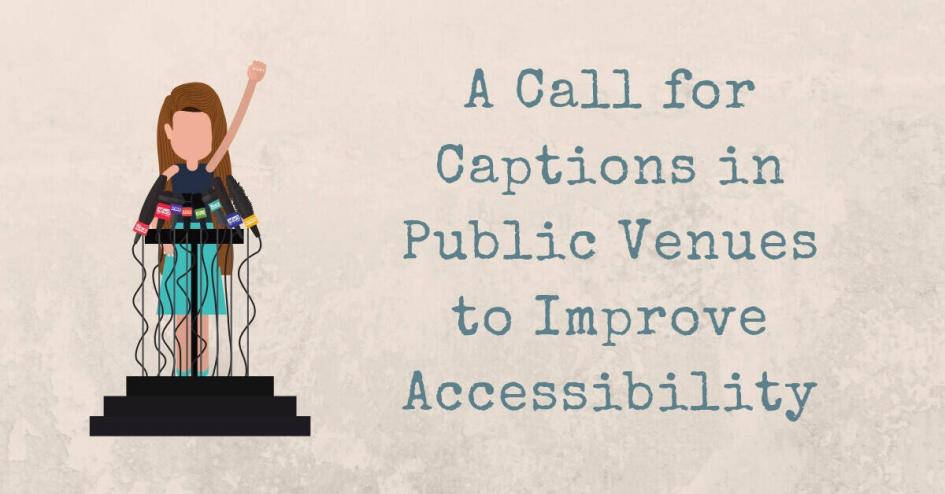
A Call for Captions in Public Venues to Improve Accessibility
Seeing a film on the big screen, attending a play or taking in the latest art exhibition: it’s easy to take these culturally enriching experiences for granted. But for hard of hearing and deaf people across the UK, these events aren’t as accessible as they could be due a lack of captioning. That’s why campaigners are calling for captions to be more widespread and of a higher quality. With around 11 million hard of hearing people in the UK, this is a change that has been a long time coming.
The campaign
The campaigners are using Caption Awareness Week to provide captions for classic productions like Mamma Mia and Les Miserables, providing text live through the entire performance. The closed captioning of such high-profile events is intended to raise awareness of the lack of closed captioning generally during arts events, and the need for more captions in films and theatrical productions across the country. Spearheading the campaign is Stagetext, a charity which provides closed captioning services for arts events around the UK, in a bid to make events more easily accessible for the deaf and hard of hearing. With such a rich history of the arts, it is a shame that some people are not able to access all events, which is why the CEO of Stagetext Melanie Sharpe wants to “bring to life the passion and excitement of the arts to many more people.” “Through Captioning Awareness Week, we hope to shine a spotlight on the variety of different events and experiences that are available, so that audience members with hearing loss, or people who miss a word here and there can have their theatrical and cultural experiences transformed,” she says.
Problems with relying on British Sign Language interpreters
This is not the first-time campaigners have called for more accessibility in the arts for the deaf and hard of hearing. The charity Action on Hearing loss recently campaigned for more British Sign Language (BSL) interpreters in live entertainment venues. The campaign focused more on smaller venues, calling for greater government investment in sign language interpreters around the UK. The campaign did an excellent job of highlighting the barriers faced by of hearing-impaired art lovers, such as Rhyan Berrigan, a civil servant from Llanbradach, near Caerphilly. She lamented the fact that entire runs of shows would only have one or two with an interpreter. However, focus on the campaign also drew attention to the low pay that afflicts the industry, which deters young people from choosing it as a sustainable career. Although there are only 800 registered interpreters for 25,000 sign language users in the UK, and even though the training for the profession is a rigorous 7-year course, this demand has not raised wages, which have remained stagnant at an average of 25,000 pounds a year. This is less than the UK average salary. The other problem with relying on BSL interpreters for live events is one of accessibility itself. There are more people who can read words from captions than there are those who can understand BSL. So, providing a comprehensive closed-caption service could actually be beneficial to more people, as well as being more cost-effective than using BSL. This is perhaps why services like Stagetext are so attractive to venues.
What does the campaign hope to achieve?
Campaigners would like to see captioning technology incorporated into a wider variety of shows, and for more information to be provided in galleries and museums for the deaf and hard of hearing community. Sharpe spoke of the need for greater accessibility when it comes to the arts: “Although the Captioning Awareness Week is a celebration, it is also a reminder of how much further we need to come to ensure that large sections of society aren’t excluded from something that many of us take for granted.”
Visit House of Hearing for a comprehensive hearing evaluation
Untreated hearing loss can have a serious negative impact on your health, your relationships, your career and your enjoyment of your favourite leisure activities. Fortunately, treatment with hearing aids can help you experience better hearing almost immediately. For a thorough hearing evaluation and expert hearing aid fitting, schedule an appointment at House of Hearing today.
Our Clinics
All House of Hearing clinics are in town centre locations and accessible to public transport and parking. Home visits also available if mobility is an issue.


.png)
.png)
.png)

.png)
